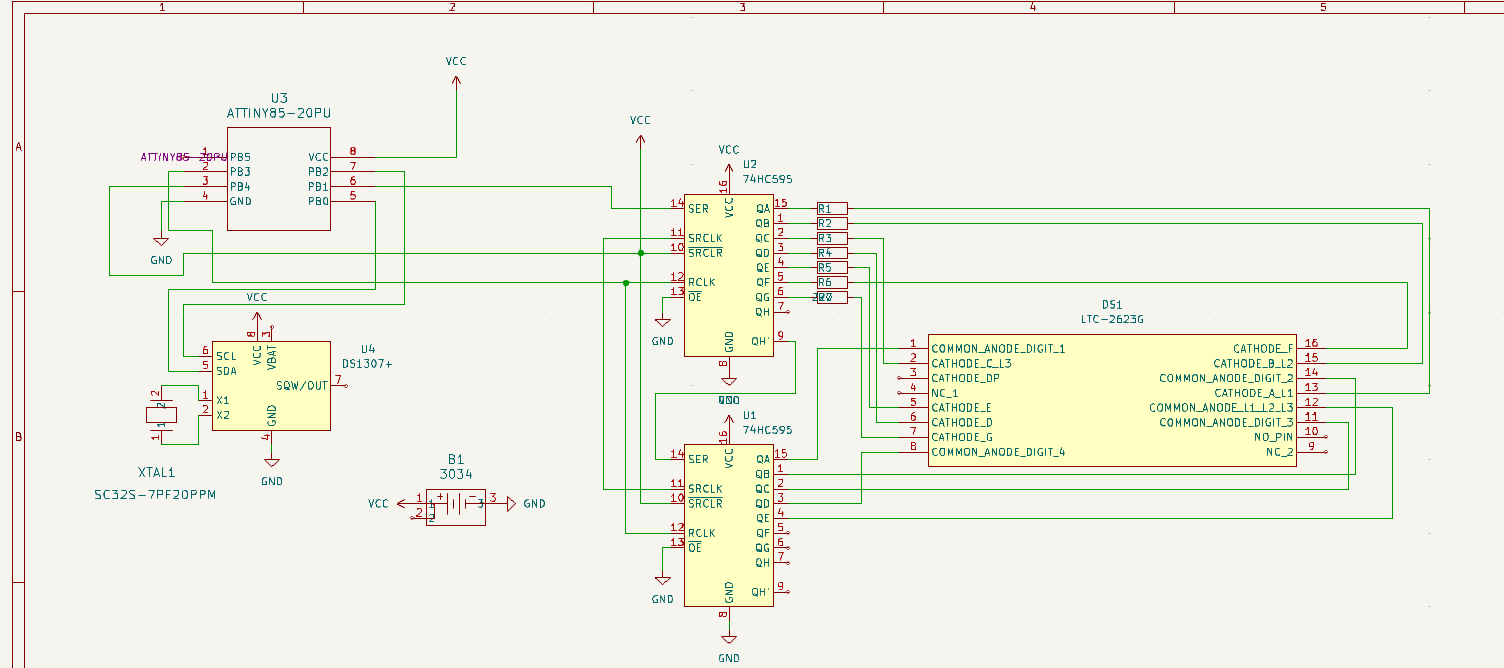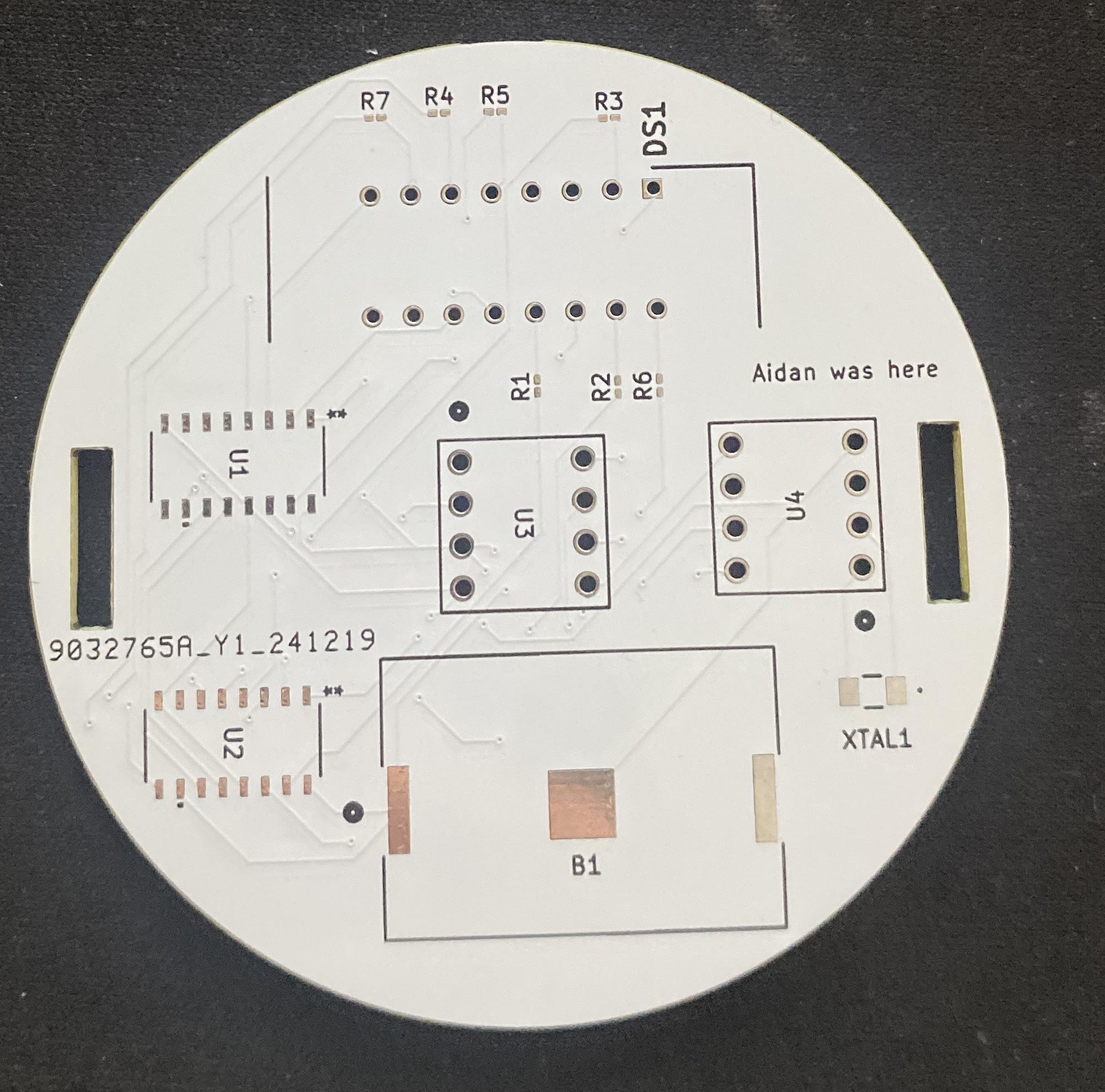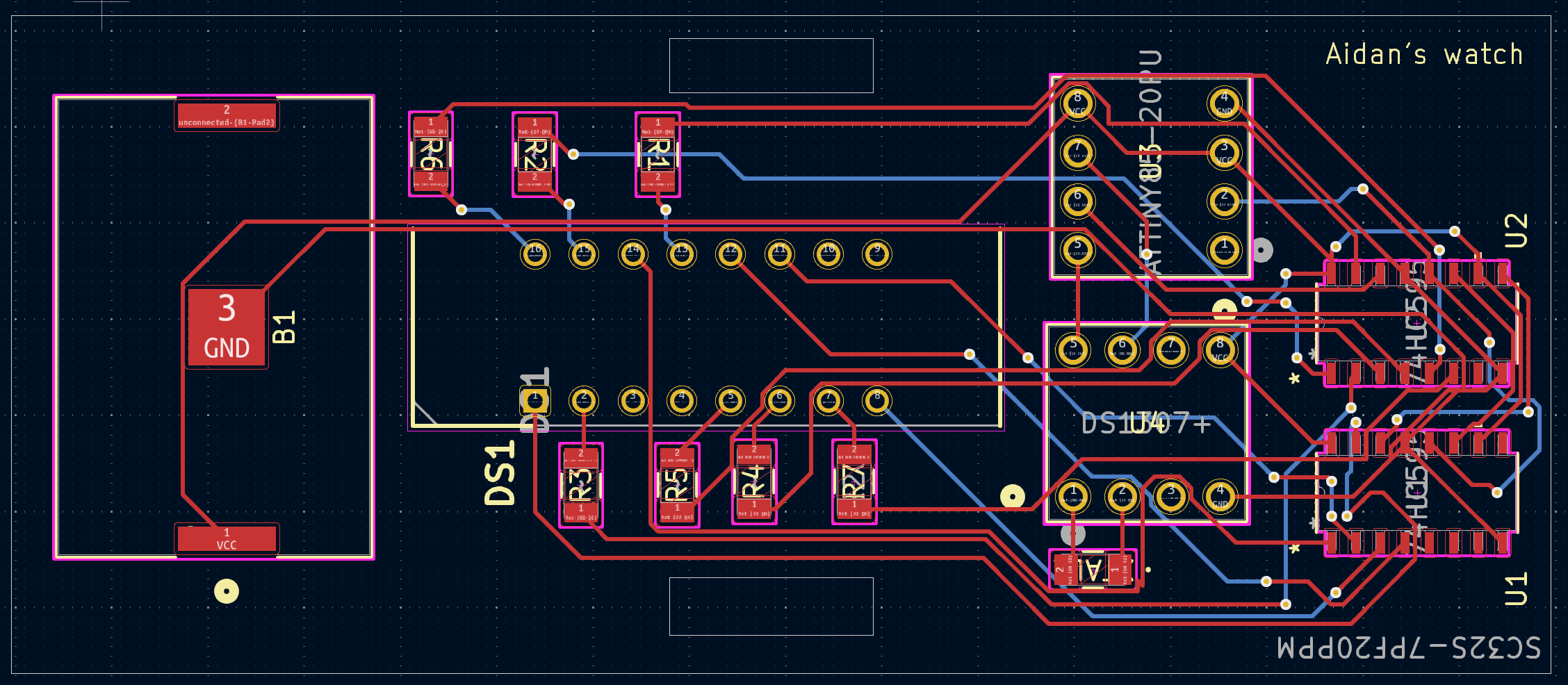Bare Metal Watch
This is a personal project to practice my embedded skills as well as PCB design. The idea was to design and build a very simple digital watch completely from the ground up. There is very limited features on the watch mainly due to time constraints as I did this project while doing my Masters.
Currently still in a work in progress, just waiting for my PCB’s to be delivered.
Skills
- Embedded C/C++
- PCB design (KiCad)
- Soldering and HW debugging
- AVR Microcontrollers
- I2C
Background
This project is based around the ATtiny85 Microcontroller. As it has limited GPIO I used two 8-bit shift registers to interface with the 4 digit, 7-segment display I am using. Additionally the The ATtiny does not have a RTC so a separate module is used in conjunction with an oscillator.
Everything is done from scratch for this project except the I2C implementation. I tried to code my own bit banging solution but it proved too time consuming and difficult as I do not have access to an Oscilliscope or logic analyzer for debugging.
Schematic:

PCB Has gone through a few iterations. The first version was circular with a few glaring issues:
- Wrong resistor footprint (too small to hand solder)
- Band cuttouts placed wrong.

The second design is just a simple rectangle which made routing a little easier.

Code
To program the chip I used a sparkfun AVR programmer.
Right now it is super barebones. Updating the LCD is done in the main loop and there are no interrupts. In the future I would like to add a button so the user can set and change the time themselves.
The most difficult part was interfacing with the RTC. I used already implemented code called “USI_TWI_Master” for the I2C communication but implemented setting and reading the time myself according to the datasheet.
1
2
3
4
5
6
7
8
9
10
11
12
13
14
15
16
17
18
19
20
21
22
23
24
25
26
27
28
29
30
31
32
33
34
35
36
37
38
39
40
41
42
43
44
45
46
47
48
49
50
51
52
53
54
55
56
57
58
#include <avr/io.h>
#include "rtc.h"
#include <util/delay.h>
#include "USI_TWI_Master.h"
#define RTC_ADDRESS 0x68
void rtc_init() {
USI_TWI_Master_Initialise();
uint8_t seconds = rtc_read(0x00); // Read the current seconds value
seconds &= 0x7F; // Clear the CH bit (set it to 0)
rtc_write(0x00, seconds); // Write back to start the clock
}
static uint8_t dec2bcd(uint8_t val) {
return ((val / 10) << 4) | (val % 10);
}
static uint8_t bcd2dec(uint8_t val) {
return ((val >> 4) * 10) + (val & 0x0F);
}
void rtc_write(uint8_t reg, uint8_t value) {
uint8_t msg[3];
msg[0] = (RTC_ADDRESS << 1); // DS1307 address with write bit
msg[1] = reg; // Register to write to
msg[2] = value; // Value to write
USI_TWI_Start_Read_Write(msg, 3); // Send message
USI_TWI_Master_Stop(); // Send stop condition
}
void rtc_set_time(uint8_t min, uint8_t hour) {
rtc_write(0x01, dec2bcd(min)); // Set minutes register
rtc_write(0x02, dec2bcd(hour)); // Set hours register
}
uint8_t rtc_read(uint8_t reg) {
uint8_t msg[2];
msg[0] = (RTC_ADDRESS << 1); // DS1307 address with write bit
msg[1] = reg; // Register to read from
USI_TWI_Start_Read_Write(msg, 2); // Send the register address
USI_TWI_Master_Stop(); // Send stop condition after setting register address
// Set up to read data back from the DS1307
msg[0] = (RTC_ADDRESS << 1) | 0x01; // DS1307 address with read bit
USI_TWI_Start_Read_Write(msg, 2); // Read from DS1307
USI_TWI_Master_Stop(); // Send stop condition after reading
return msg[1]; // Return the read value
}
void rtc_read_time(uint8_t *min, uint8_t *hour) {
*min = bcd2dec(rtc_read(0x01)); // Read and convert minutes
*hour = bcd2dec(rtc_read(0x02)); // Read and convert hours
}